Announcement of General Amnesty
The day of the messenger ’s entrance to Makkah turned out to be an event of such generosity and magnanimity that everybody was forgiven(the messenger Announcement of General Amnesty), except the few who, in their own way, insisted on refusing his mercy. He announced that all those would be granted full protection who took refuge in Abu Sufyan’s house, or kept the doors of their houses closed, or took shelter in Al-Haram. He instructed the Muslim army to fight only those who opposed them. He also instructed the Muslim army to observe full restraint in regard to the property of the Makkans and commit no excesses. (Zadul Ma’ad, 3: 403)
The messenger(PBUH) instructed Hazrat ‘Abbas to take Abu Sufyan to a place from where he could have a full view of the entrance of the Islamic army to Makkah. (Hazrat ‘Abbas took him to a high hill). The battalions of the victorious Islamic army looked like the graceful and majestic waves of a wide ocean. Different tribes were on the move under their flags. When a tribe came close, Abu Sufyan inquired Hazrat ‘Abbas about its identity, and, on being informed about its name, he commented, “What do I have to do with this tribe?” ( Sahih Al-Bukhari, Kitabul Maghazi.) This went on this way till The messenger (PBUH) himself appeared in a battalion. This was the battalion of the Muhajireen and the Ansar who were so fully covered in armor that only their eyes were exposed. It looked green. Looking at this battalion Abu Sufyan asked in awe: “By Allah, the Author of grander! Who are these people, ‘Abbas?” Hazrat ‘Abbas replied, “This is the Prophet of Allah (PBUH) with the Muhajireen and the Ansar.” Abu Sufyan confessed, “None had ever attained this strength and grandeur before. By God, O Abul Fazl! How magnificent is the grandeur of your brother’s son today!” ‘Abbas replied, “This is the magnificence of prophethood.”
Then Abu Sufyan announced loudly, “O people of Quraysh! This is The messenger (PBUH) who has come to you with such might that you have never known before. Now, whoever will take refuge in the house of Abu Sufyan will be granted peace.(Announcement of General Amnesty)” People retorted to him, “May Allah deal with you! How much space is there in your house that we all could take refuge in it?” Abu Sufyan then announced, “And those who will close the doors of their houses will also be granted peace, and those who seek refuge in Al-Haram will be granted peace as well.” People scattered and took refuge in their homes or in Al-Haram. (Seerat Ibn Hisham, 2: 404-05, Sahih Muslim, Kitabul Jihad was Siyar, Bab Fath Makkah.)
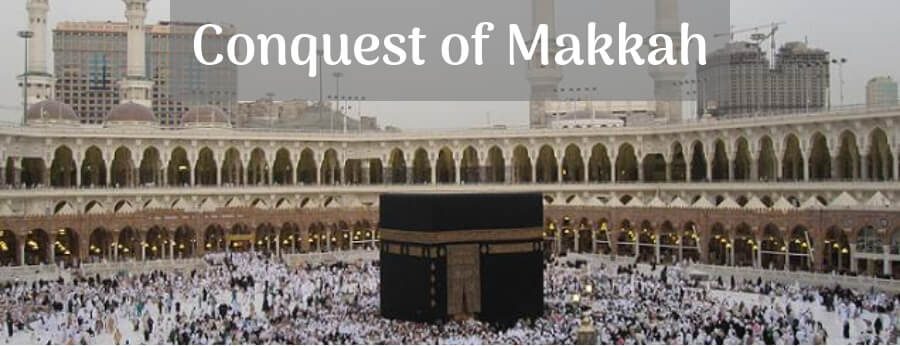
The Victor Enters Makkah in Humility
When The messenger (PBUH) entered Makkah on the day of its conquest, his head was bowed down in humility so low that it was about to touch the saddle of his camel. (Seerat Ibn Hisham, 2: 405, Mustadrak Haakim, 3: 50.) He was reciting Surah Al-Fath of the Qur`an at that time. ( Sahih Al-Bukhari, Kitabul Maghazi.) On that occasion (when the city which was considered as the spiritual and political center of the Arab peninsula had fallen to him), he displayed all signs of magnanimity, humility, and servitude to Allah to the maximum. He let Usama, the son of his freed slave Hazrat Zayd, ride behind him on his camel. Although the nobles of Bani Hashim and the Quraysh were around, none was given this honor. (Sahih Al-Bukhari, Kitabul Maghazi.) That day when a person talked with him, he was awed to the extent that he trembled. The Prophet (PBUH) noticed it and assured him, “Don’t be afraid. Relax. I am not a king. I am son of a woman from the Quraysh who used to eat pieces of dry meat.” (Mustadrak Haakim, 3: 50.) The Day of Forgiveness and Mercy, Not of Bloodshed. When S’ad bin ‘Ubada, the commander of the battalion of the Ansar, passed by Abu Sufyan, he said,
“Today is the day of fierceness and massacre. Today all will be permissible in the K’aba. Today Allah has dishonored the Quraysh.”
When The messenger (PBUH) passed by Abu Sufyan after a little while, Abu Sufyan complained, “O Prophet of Allah, did you hear what S’ad said a while ago?” Upon inquiry from the Prophet (PBUH), he related the whole incident. The Prophet (PBUH) disliked S’ad’s words and said,
“Today is the day of forgiveness and mercy (Announcement of General Amnesty) Today Allah will grant honor to the Quraysh and will increase the honor of the K’aba.”
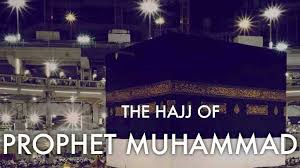
Then The messenger (PBUH) called S’ad, took the flag from him, and gave it to his son Qays. (Sahih Al-Bukhari, Kitabul Maghazi, Bab Ghazwatul Fath, Fathul Bari, 8-9.)Granting the flag to S’ad’s son, as the Prophet (pbuh) thought, was equal to letting S’ad keep it. By changing the word Malhama (massacre) with the word Marhama (mercy), and changing Hazrat S’ad as flag-bearer with Hazrat Qays, his son, the Prophet (PBUH) relieved the heart of Abu Sufyan without hurting the feelings of Hazrat S’ad bin ‘Ubada whose services to Islam were very precious. A better way to maintain a balance between the two parties could not be conceived.
Skirmishes
On this occasion the soldiers of Khalid bin Waleed entered into skirmishes with the associates of Safwan bin Umayya, ‘Ikrama bin Abu Jahl, and Suhayl bin ‘Amr, in which about twelve disbelievers were killed. After that they surrendered. (Ibn Hisham, 2: 408.)
Removal of Idols from Al-Haram
When the Makkans settled down comfortably after the conquest of the city, the Prophet (PBUH) went to Al-Haram and performed Tawaaf. He had a bow in his hand. There were 360 idols in the K’aba. He pushed the idols with the bow one after another and recited the Qur`anic verse:
“Truth (the Islamic Monotheism or this Qur`an or Jihad against polytheists) has come and Baatil (falsehood, i.e. Satan or polytheism) has vanished. Surely, Baatil is ever bound to vanish” [Al-Isra`, 17: 81].
The idols fell off their pedestals facedown. There were some statues and figures inside the K’aba, which were also destroyed by the order of the Prophet (PBUH)
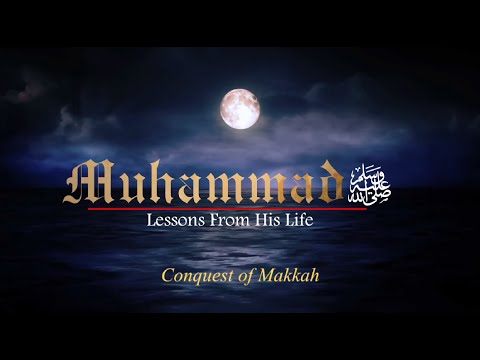
After completing the Tawaaf, the Prophet (PBUH) called ‘Uthman bin Talha, the key bearer of the K’aba, took the key from him, opened the door, and entered there. Before his emigration to Madinah, the Prophet (PBUH) had once asked ‘Uthman for the key of the K’aba. He had refused to give him the key rather harshly. The Prophet (PBUH) had maintained restraint and composure, but he had told him, “‘Uthman! One day you will see this key in my hand and I will give it to whomsoever I like.” ‘Uthman had retorted then, “If it happens, that will be a day of real disgrace and destruction for the Quraysh.” The Prophet (PBUH) had said, “No, they will be raised in honor and prosperity that day.” ‘Uthman bin Talha had remembered these words of the Prophet (PBUH) and had felt at heart that what the Prophet (PBUH) had professed would turn out to be true.(Zadul Ma’ad, 1: 425, Sahih Al-Bukhari ) When the Prophet (PBUH) stepped out of K’aba, the key was in his hand. Hazrat ‘Ali quickly stood up and said, “Blessings and peace be on you. As you granted us Suqaya (service of supplying water), give us the charge of Hijaba (keeping the gate of Baytullah) as well.” The Prophet (PBUH) said,
“Today is the day of showing consideration and kindness in the best form.”
Then he called ‘Uthman, gave the key back to him, and said, “If anyone will ever forcibly take the key from you, he will be a tyrant.” (Seerat Ibn Hisham, 2: 412.)
It was a tradition in the Arab culture that the murder of a person had to be avenged by the family of the victim at all costs. If the murderer could not be killed in retaliation for some reason, the name of the victim was recorded in the family register and the revenge was taken even after hundreds of years. If the offender died, the family of the victim killed a person from the offender’s family or tribe. Similarly, claiming the blood money was also a long-held tradition in Arabia. Avenging the murder of a person was a matter of honor for the aggrieved family. Many other such values had become essential norms of the tribal life in Arabia. Islam had come to eradicate all such wrong notions and malpractices. That is whyThe messenger (PBUH) made a strong proclamation in regard to all such false values and practices in his famous sermon that he delivered on the occasion of his Last Hajj in these words: “I have trampled down all such traditions under my feet.” (Ibn Hisham, 2: 412, Sunan Abi Dawood, Kitabud Dayaat.)
In Arabia, as well as in the other parts of the world, discrimination on the basis of lineage, family, and nationality was widely practiced in the society. This was done in India also among the followers of Hinduism: human beings were divided into four castes, the lowest, who were called the Shudr, were degraded to the status of animals and were denied all rights to compete with others in life. Islam’s greatest contribution to the cause of humanitarianism is the equality that it introduced and established among human beings, irrespective of one’s nationality (whether he was an Arab or a non-Arab), family descent, or social status. Islam granted equal rights and opportunities to all to rise to the highest level of prosperity and recognition. That is why the Prophet (pbuh) recited a verse of the Qur`an in his Last Hajj and made the historic proclamation: “All of you are the progeny of Adam, and Adam was created from dust.” (Ibn Hisham, 2: 2: 412, Sunan Abi Dawood, Kitabud Dayaat.)
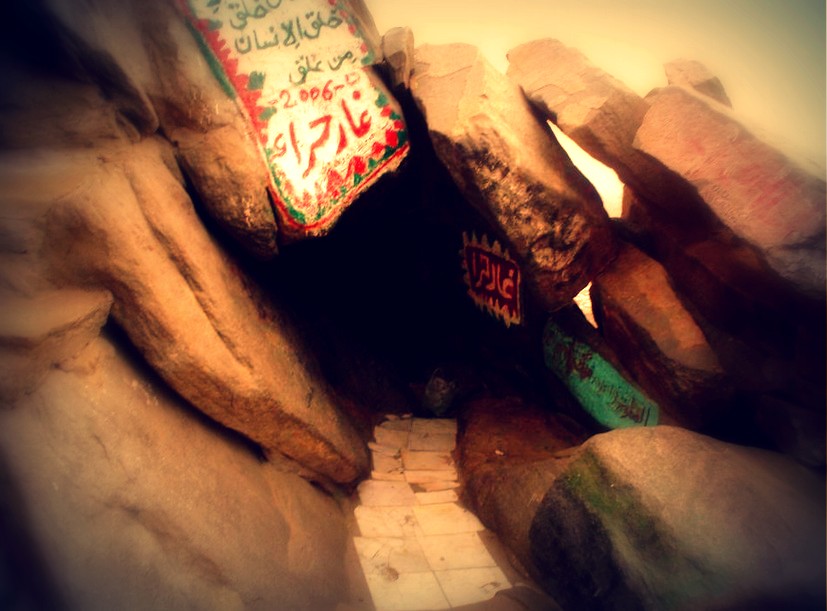
After his Hajj sermon when The messenger (PBUH) looked around, the vanquished chiefs of the Quraysh were standing in front of him. These included the ones who had done all within their means to destroy Islam, and the ones who had competed with others in cursing the Prophet (pbuh) and abusing him, and the ones who had strewn thorns in his path, and the ones who had pelted him with stones to the extent that blood streamed down to his heels, and the ones whose revengefulness could not be satiated but with the blood of The messenger (PBUH), and the ones who had launched attacks on the city of Madinah, and also the ones who used to force the Muslims to the burning sand and put heavy rocks on their chest to make it impossible for them even to change sides.
The messenger (PBUH) looked at them and asked them in an awe-inspiring tone: “Do you have any idea what am I going to do with you?” They, who knew the magnanimity of the Prophet (PBUH) so well, replied, “You are a kind brother and son of a kind brother.” The Prophet (pbuh) announced,
“Today there is no charge against you. Go. All of you are free.”
The disbelievers of Makkah had occupied the homes of the Mahajireen who had immigrated to Madinah. Now the owners of the houses were back, and were surely in a position to rightfully claim their property – their homes that everybody loves so dearly. But The messenger (PBUH) asked all of them to forego their claim to their houses.
When the time of Salah approached, Hazrat Bilal® climbed the roof of the K’aba and called Adhan. The people of the Quraysh, although subjugated, noticed this change wistfully. ‘Attaab bin Usayd commented: “God protected my father’s honor that he died before hearing this call.” Another chief of the Quraysh said: “There is no point in living now.” (Ibn Hisham, 2: 412.)
The Prophet (pbuh) took a seat at a high place at Safa. Those who wished to accept Islam offered Bai’ah (oath of allegiance) at his hands. When the turn of men was over, women stepped forward to offer Bai’ah. The messenger (PBUH) took a pledge from the women to follow the tenets of Islam and observe the code of morality. He then dipped his hand in a bowl of water. When he took out his hand, the women put their hands in it, and this way the pledge was sanctified. ( Rahmatullil ‘Aalameen, 1: 120-21. )
There were ten persons from the Quraysh who were their top leaders. One of them, Safwan bin Umayya, fled to Jeddah. ‘Umayr bin Wahab came to the Prophet (pbuh) and told him about Safwan that he, a chief of the Arabs, was fleeing and thus leaving Makkah forever. The Prophet (pbuh) gave his turban to ‘Umayr as a token of his forgiveness for Safwan. ‘Umayr went to Jeddah and brought him back to Makkah. He did not accept Islam until the Battle of Hunayn. (Ibn Hisham, 2: 417-18.)
‘Abdullah bin Zub’ira, an Arab poet who used to denounce the Prophet (PBUH) in his compositions and criticize the Qur`an, fled to Najran. But after hearing about the magnanimity of the Prophet (PBUH), he returned and embraced Islam. (Ibn Hisham, 2: 418-19, Dalaele Nabuwwah: 99.
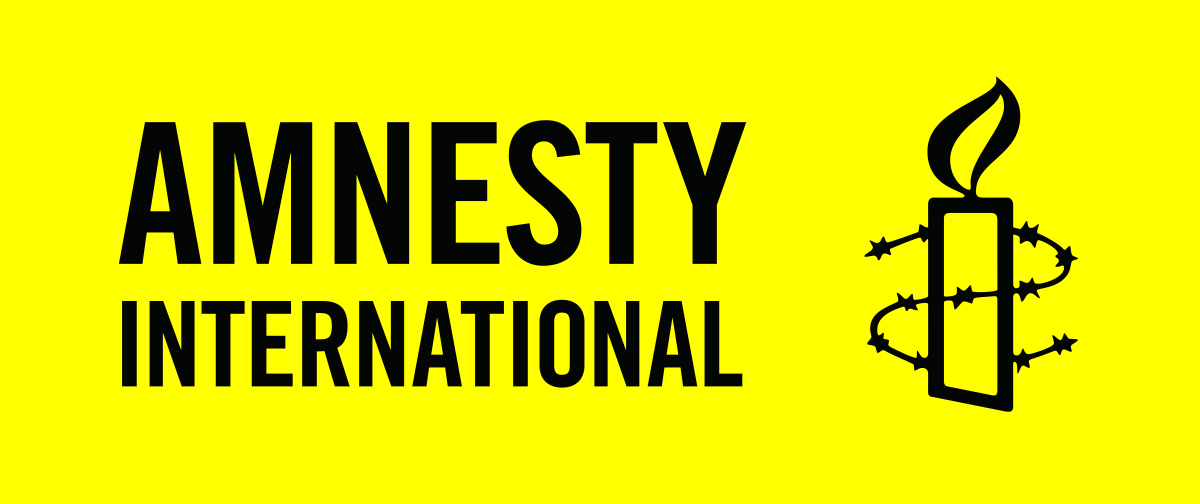
Harith bin Hisham’s daughter Umme Hakeem was ‘Ikrama bin Abu Jahl’s wife. She embraced Islam on the day of the conquest of Makkah, but her husband ‘Ikrama escaped to Yemen. Umme Hakeem got the word of forgiveness for him fromThe messenger (PBUH) and went after him to Yemen. There she invited him to Islam that he accepted and returned to Makkah. On seeing him, the Prophet (pbuh) rose from his seat happily and rushed toward him in such excitement that he did not care to cover his body with an additional sheet of cloth that he used to do on such occasions. He then accepted ‘Ikrama’s Bai’ah. ( Dalaelun Nabuwwah lil Bayhaqui, 5: 95.) Wahshi was also granted forgiveness. He had killed Ameer Hamza (the Prophet’s beloved uncle) deceitfully and desecrated his dead body. (Rahmatullil ‘Aalameen, 1: 122.)
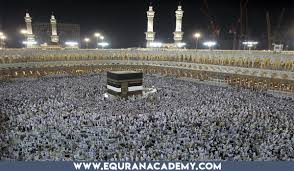
The following day from the conquest of Makkah when The messenger (pbuh) was making Tawaaf, Fuzala bin ‘Umayr was around. Considering the situation favorable, he thought of putting The messenger (pbuh) to death. When he approached near, the Prophet (PBUH) asked, “Is it Fuzala?” He replied in the affirmative. The Prophet (PBUH) mentioned, “What were you planning in your heart right now?” He replied, “Nothing. I was remembering Allah.” The Prophet (PBUH) laughed and told him, “Alright. Seek forgiveness for yourself from your God.” Saying this, he put his hand on Fuzala’s chest. Fuzala narrated later that the touch of the Prophet’s hand soothed his troubled heart then and there and the next moment the love of the Prophet (PBUH) increased in his heart to such extent that none remained dearer to him than the Prophet (PBUH).” When he left for home, the woman whom he loved and whose company he used to enjoy, met him in the way and invited him to share a moment with her. But he turned down her invitation and said, “No. Allah and Islam forbid from such things.” (Seerat Ibn Hisham, 2: 417.)
Related Topics: If you really enjoy this essay, then there are some more informative posts for you!
- When did the Battle of Khaybar in Islam occur ?
- What was written to the kings of, kisra and Iran?
- When was the Battle of Moota fought?
Our Best Android Apps
About CEO Al-Asad Online
Hafiz Abdul Hameed
Master In Islamic Studies
(Tajweed, Waqf)
Web Developer/Administrator
Web Content Writer
Blogger, SEO Expert
Graphic Designer
WhatsApp: +92 3017363500
E-Mail: hdhuddi@gmail.com


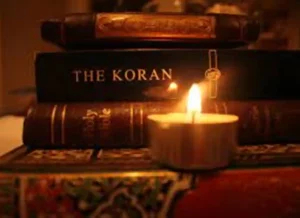
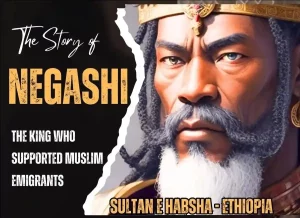
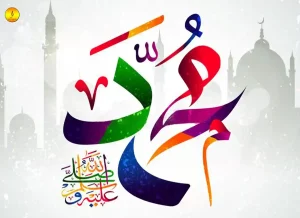
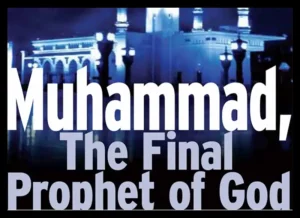


i like it v much .THIS is good infomation about islam and Quran. Islamic articles is so good and information according to Islam.